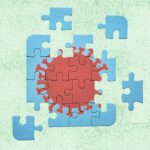People may assume that because I’m a registered dietitian, I have a “perfect relationship” with food. I’m here to tell you, there is no such thing, and I have struggled as much as anyone to develop and maintain healthy eating habits and a healthy outlook on the role of food in my life.
I know that biologically, there’s only one reason to eat: to get your body the nutrients it needs to function. But I also know that food is so much more than fuel. It has ties to culture and tradition, as well as to family and friends. When you go out to eat with a group of friends or sit down to a holiday dinner, odds are, you are much more focused on the social aspect of “breaking bread” together than the way that the food on the table is going to power your body.
In these ways, we all have a relationship with food that goes beyond mere sustenance, and influences how, what, and when we choose to eat. For better or for worse, many of our views about food and eating are formed during childhood and become ingrained in us. These views can be very difficult to change.
By the time I decided to make nutrition my career path, at age 18, my relationship with food was already mostly formed. I grew up in an age when fat — any kind of fat — was labeled “bad” and in a household where we weren’t allowed to have certain foods or have dessert unless we cleared our plates. To be clear, this is not a criticism of my parents — I think those beliefs were pretty commonplace when I grew up and, to be honest, still are even now.
Those early experiences with food absolutely influenced how I feel about certain foods and even about myself after eating them. I internalized the conflicting cultural messages that wasting food was bad, but so was overeating. That I must somehow finish all the food on my plate while simultaneously not stuffing myself.
Personally and professionally, I have spent a huge amount of time reflecting on the emotional side of food and where my views on food, weight, and self-worth really came from. I have worked hard to not only push past the “get your money’s worth” and “clear your plate” thoughts in my head for myself, but also to raise my children without ever using these phrases. My hope is that they won’t have to work as hard as I did to maintain a healthy relationship with food.
My career has taught me a few ways to improve that relationship, regardless of what your individual hang-ups are. Maybe you were raised by a mom who was always dieting and made you feel like you needed to as well, or maybe your parents showed love through cooking and encouraged you to eat more than you needed. My mom was a competitive runner when I was young, and she was so thin as a result. While she never put any pressure on me, it was hard as a young girl not to compare my much thicker body to hers and feel disappointed. Whatever your specific struggles, the following advice can help you keep your relationship with food happy and healthy.
1. Pay Attention to Your Body’s Natural Cues
Your body has natural hunger and fullness cues, and listening to them can be a huge step toward a healthier lifestyle and view on food as a whole, notes an article in Forbes. Sadly, most of us learn to ignore this inner voice in an effort to “clear our plates,” or we grow up trying to limit eating even when we’re hungry out of fear of gaining weight. Mindful eating — eating slowly, savoring your food, and avoiding distractions such as television or your phone — can make it much easier for you to tune in to those hunger cues again. In my house, we always say “stop when your tummy is full” (you can say “stomach” if you’re an adult). It doesn’t matter if you’ve taken only a few bites, and if everything on the plate will need to be thrown away as a result; stopping when you’re actually full is so much better for your physical and emotional health than stuffing yourself for no reason.



